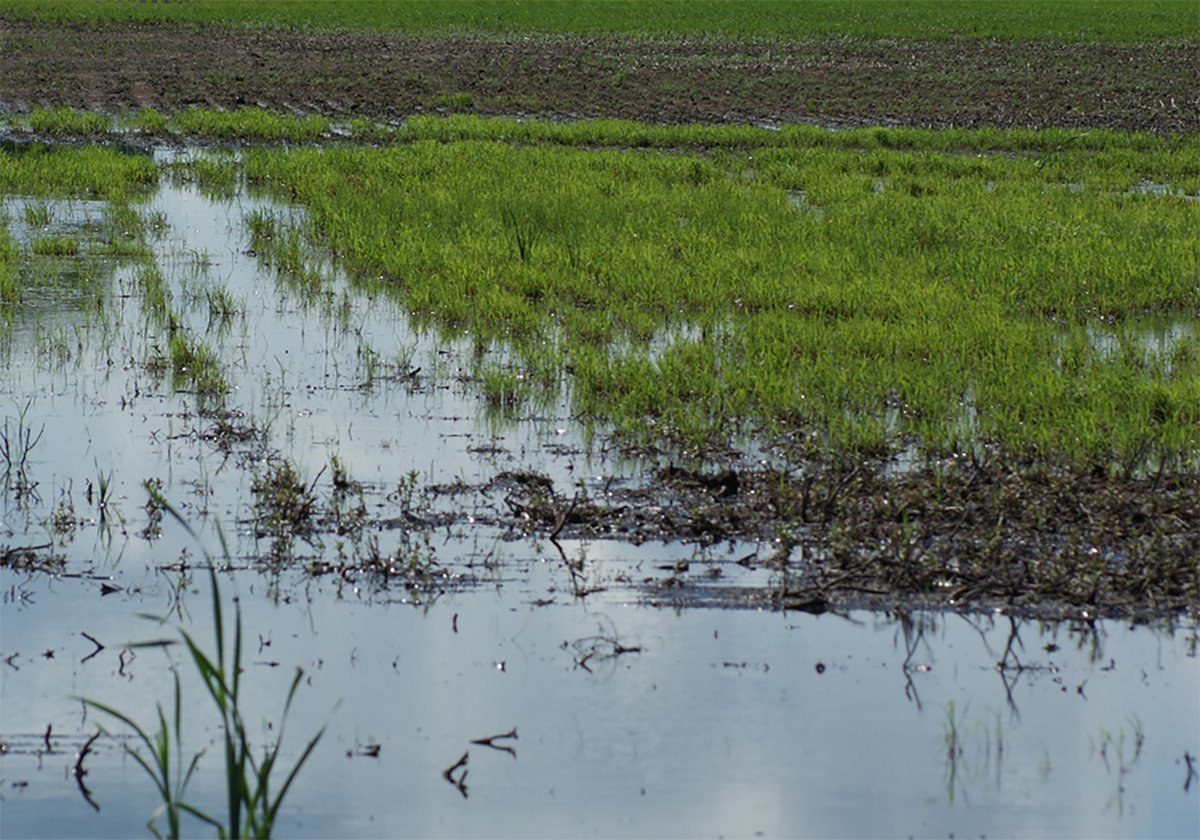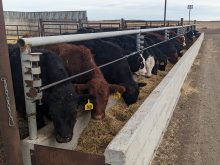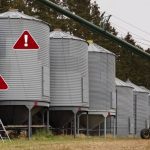IN A MARCH poll, Leger Marketing found that 92 percent of Canadians surveyed place more trust in farmers than in any other occupation. Only firefighters (96 percent) and nurses (95 percent) scored higher.
At the other end of the scale? Car salesmen, who had the trust of only 19 percent of Canadians, and politicians, who scored last at 14 percent.
Is it any wonder?
In their meeting of two weeks ago, agriculture ministers were unanimous: despite its many flaws, the Canadian Agricultural Income Stabilization program should be fixed, not scrapped, and signed an agreement to that effect.
Read Also

Topsy-turvy precipitation this year challenges crop predictions
Rainfall can vary dramatically over a short distance. Precipitation maps can’t catch all the deviations, but they do provide a broad perspective.
In his March 20 media conference following the meeting, federal agriculture minister Chuck Strahl said prime minister Stephen Harper’s campaign promise to kill CAIS was off the table, and committed the federal government to “work together with the provinces to move forward on previous commitments to program changes to make CAIS more responsive to the needs of producers.”
In its March 31 media release, Agriculture Canada confirmed the government’s commitment to fix CAIS.
Last week, Harper told the House of Commons that his government fully intends to scrap CAIS and called on farmers to pressure provincial agriculture ministers to agree. Strahl repeated these comments outside the House.
Harper has a reputation for not listening to anyone, and Strahl takes his marching orders from Harper. Still, such glib dismissal of a federal-provincial accord signed less than two weeks ago is unprecedented.
Over the past 18 months, commodity groups, farm organizations and public servants have spent considerable time and taxpayer money agreeing to a detailed set of changes to make CAIS more responsive to the needs of Canada’s farmers. These changes need to be given a chance to work.
But CAIS alone is not enough. Stabilizing income at record low levels does nothing to alleviate the prolonged farm crisis facing Canada’s farmers. Rather than scrapping the program, government needs to supplement it with well-constructed, complementary farm programs that provide emergency disaster relief and address the devastating effect of prolonged negative farm margins on Canada’s farmers, Canadian food security and the future of rural communities.
Equally critical to the survival of agriculture is continued support for structures that empower producers in the market place. In Western Canada, there is no better example than the Canadian Wheat Board.
Given Harper’s glib disregard for the unanimous position of the provinces on CAIS, his promise to destroy the single desk export sales authority for wheat, barley and durum must also be taken seriously.
In my 12 year career as a monthly farm columnist, it is worth noting that my last two Producer columns in support of the CWB evoked more response than any previous columns – all, with two exceptions, overwhelmingly supportive.
Many conversations were worth sharing; two stand out.
One was with Manitoba canola grower Larry Bohdanovich. Acknowledging a surplus of canola on world markets (approximately four million tonnes of Canada’s canola are crushed domestically and another eight or nine million tonnes are exported), Bohdanovich argues that big exporters of prairie canola have a vested interest in keeping prices low to enhance the profitability of their domestic crushing operations.
For some months now, both export basis levels and canola crushing margins have been at all-time highs. Meanwhile, prairie canola growers are struggling to cover their fixed and variable costs of production.
Together with some of his neighbours, Bohdanovich is lobbying farm organizations to support voluntary export contracts with the Canadian Wheat Board for up to half a million tonnes of canola annually.
Armed with strong economic arguments, his resolution has received unanimous support from the Manitoba Canola Growers and the Keystone Agricultural Producers. On April 11, he was to meet with the CWB to formally request it begin developing a five-year voluntary pilot project to market canola beginning Aug. 1, 2007.
Bohdanovich sees similar opportunities for flax, peas, lentils, buckwheat and fall rye. Given highly concentrated markets pre and post farmgate, farmers producing these commodities are no less deserving of the market clout and pricing authority of a central export sales desk, he adds.
Alberta canola grower Ken Eshpeter agrees. The claim that farmers need “choice” in the market is pure rhetoric, says Eshpeter, emotion filling his voice.
“I tried to market some flax and it took exactly three minutes and three phone calls to exhaust all options. So much for choices. We wound up putting it in the bin rather than sell it at a loss.”
An active member of his local producer car shippers group, Eshpeter has been lobbying to keep CN from abandoning a short-line track servicing six communities between Camrose and Alliance, Alta. It’s 100 kilometres of straight track built with 135 pound steel, which Eshpeter describes as one of the best lines in the system.
Preserving the CWB’s single desk export sales authority is critical not only to ensuring fair farm returns but also guaranteeing equitable transportation options, says Eshpeter. Without the CWB, not one producer car in the great plains would move.
Within two weeks, Harper’s minority government has publicly moved from scrapping CAIS to supporting CAIS, back to scrapping it again, in full opposition to the united position of Canada’s provincial agricultural ministers.
Harper remains committed to breaking the authority of the CWB, in opposition to the economic interests of Canada’s grain farmers and the sustainability of the rural communities they support.
Standing together with the provincial agriculture ministers and the legislative authority of the CWB, farmers have the ability to stop Harper in his tracks.
It’s time this train was derailed before it flattens our prairie economy.
Wendy Holm is an agrologist, resource economist and author based in Bowen Island, B.C. She can be reached at holm@farmertofarmer.ca.














